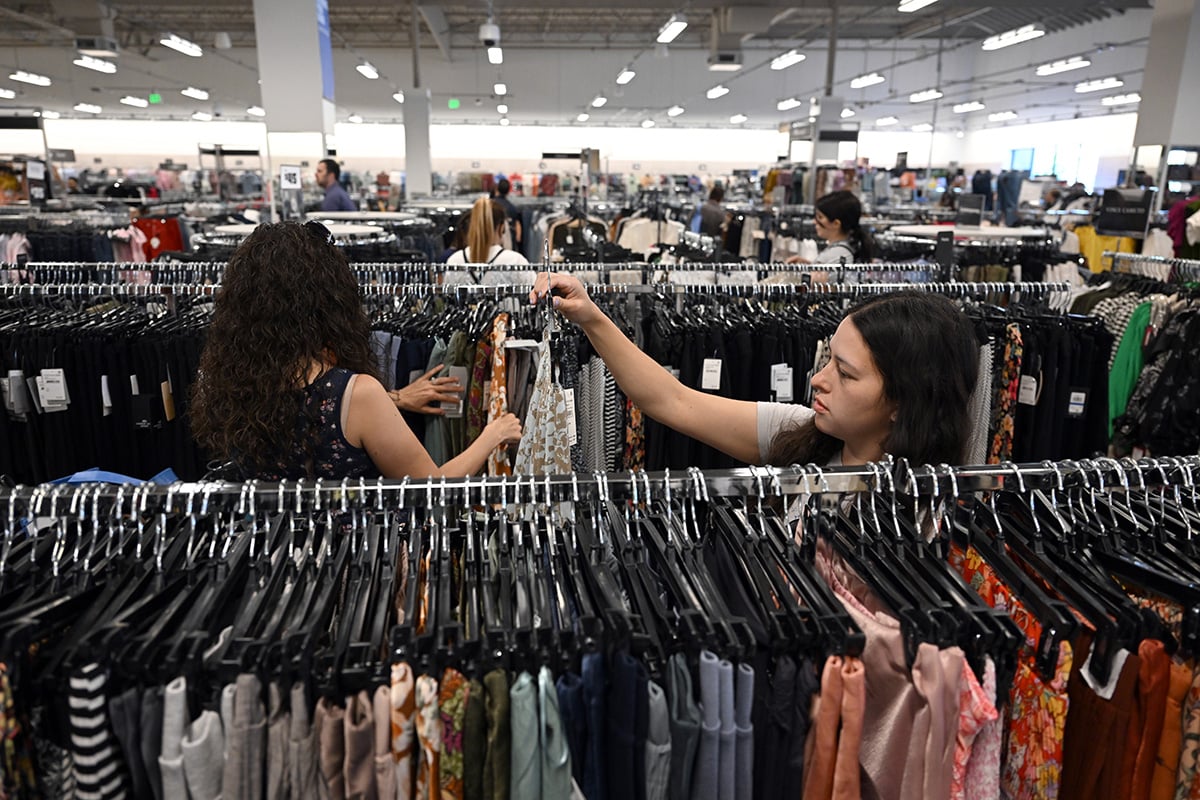 Over the past few decades, U.S.-based companies haveshifted more and more chores previously performed in-house—from ITwork and answering customer calls to finance and accountingtasks—to lower-cost locations around the world. That trend towardservices outsourcing has now run up against two potential threats:increasing political risk around the globe and, here in the UnitedStates, the Trump administration's emphasis on keeping jobs athome.
Over the past few decades, U.S.-based companies haveshifted more and more chores previously performed in-house—from ITwork and answering customer calls to finance and accountingtasks—to lower-cost locations around the world. That trend towardservices outsourcing has now run up against two potential threats:increasing political risk around the globe and, here in the UnitedStates, the Trump administration's emphasis on keeping jobs athome.
In just the last year, markers of the mounting risk haveincluded the U.K. vote for Brexit and the U.S. election of DonaldTrump. U.K. consultancy Verisk Maplecroft predicts that all regionsof the world will see a decline in the stability of governmentsover the next three years. While the hazard is greatest indeveloping nations in the Middle East and Africa, Europeancountries are also at risk, the firm said.
|The Philippines, one of the world's most popular outsourcinglocations, is a high-profile example. The nation has had a hecticsix months since Rodrigo Duterte became president last summer.Duterte has made combative comments about the United States,including announcing the Philippines' “separation” from the U.S.last fall along with his preference for an alliance with Russia andChina. Duterte also has supported extrajudicial killings of drugdealers and addicts in an attempt to control the nation's drugproblem, with Amnesty International estimating that 7,000 peoplehave been killed since July.
|H. Karthik, a partner at management consulting company EverestGroup and leader of its global sourcing practice, said Duterte'scomments about a separation from the United States altered riskperceptions.
|“No companies have publicly stated any significant changes intheir Philippines strategy, but many of them are adopting await-and-watch approach,” he said.
|Karthik compared that wariness about the Philippines todevelopments in other outsourcing locations, such as the politicalunrest in the Ukraine, Egypt, and Tunisia, and recent widespreadpublic protests in Romania.
|“There are many instances around the world of increasinggeopolitical risk,” he said, and added that in the Ukraine, Egypt,and Tunisia, the local unrest has had an effect on the demand foroutsourcing services. “There are examples where things haven't madea material impact yet, like the Philippines, and other exampleswhere people have chosen to look at locations that are more stableand less risky.”
|Companies that are making decisions about outsourcing locationsdifferentiate between different types of political risk, Karthiksaid. The instability of a government “doesn't mean much as far asthe industry is concerned,” he said. “But if it's anything aboutinvestment attraction laws, violence, or security issues, thencompanies tend to be more concerned.”
|David Rutchik, executive managing director at the consultingfirm Pace Harmon, agreed that while companies are keeping an eye onthe situation in the Philippines, they aren't at the point wherethey're considering moving to other locations.
Trump Administration's Push on Jobs
U.S.-based companies that send services work to offshorelocations are more concerned about the Trump administration's pushto keep jobs in the United States, Rutchik said.
|Although the president's comments to date have generally seemedaimed at manufacturing rather than services jobs, it's far fromclear how his rhetoric will translate into government policy. ButRutchik and others noted a couple of recent developments in theU.S. with implications for services jobs.
|Legislation introduced last month by Rep. Zoe Lofgren, D-Calif.,would tighten the requirements for the H-1B visas that allowskilled foreign workers to come to this country. Both Indianoutsourcing companies and U.S. corporations use the visas to bringworkers to the U.S. Among other things, the law would boost theminimum annual salary for workers using the visas to $130,000, morethan double the current $60,000.
|And a tax plan put forward by Speaker of the House Paul Ryan,R-Wis., would remake the U.S. tax system by exempting income fromexports from taxation but levying a border adjustment tax on goodsand services that are made overseas and sold in the UnitedStates.
|While it's highly uncertain whether the proposals will survivethe legislative process, either would have a big impact oncompanies' decisions about what work is done in the U.S. and whatwork is done offshore.
|If imports of goods and services were taxed, “there would beclear tax advantages to operating in the U.S. rather than operatingoverseas,” said Johan Gott, a principal at A.T. Kearney, a strategyand management consulting firm. “That could certainly lead to a newequation.”
|Rutchik said a tax on services delivered from offshore “couldchange and potentially really cripple the offshore portion of theoutsourcing industry.”
|Moreover, the possibility of such a tax on services or otherchanges that would discourage offshoring pose “operationalconcerns” for companies that rely on offshore providers, he said.“Companies are concerned as far as business continuity. If therewas to be some radical shift, service delivery can't change thatquickly.”
|And in the wake of incidents in which Trump has targetedcompanies that were planning to move jobs out of the U.S.,companies that outsource services work are wary of attracting thatkind of presidential attention, Rutchik said. “No one wants to bein the Twitter crosshairs and called out.”
Trade War-Gaming
Gott is heading A.T. Kearney's development of what it terms“trade war-gaming,” a process that helps companies think throughthe outcomes that are possible, given the considerable uncertaintyaround how various proposals will develop into actual policy.
|“Under different scenarios, what will the impact be, and whatlevers do you have to respond to that?” he said. “Nobody can tellyou what the future will look like, but what you need to do now issit down and think through the options.”
|While many of the companies worrying about these questions aremanufacturers, Gott said he's also getting questions from companiesthat outsource services work.
|At first glance, the prospect of a border tax might seem toencourage the recent onshoring trend in which companies bring somework that was being handled overseas back to the United States.
|But Gott said companies bringing work back generally aren'tdoing so because of cost considerations, but because certain jobshave become more important to them and are therefore better handledcloser to home. He cited the example of IT application development,which “is now in certain aspects your customer interface, so it'scritically important.”
|Instead, U.S. moves to discourage offshoring could end upfueling another trend, that of automating service work.
|“I think the back office is about to be revolutionized in manyways,” Gott said. “Raising the minimum wage of H-1B workers willaccelerate that. Companies operating in the U.S. will invest at amore rapid pace in technology solutions.”
|Everest Group's Karthik said that overall, the variousproposals, while surrounded by an enormous amount of uncertainty,are likely to produce “a more cautious approach to offshoring.”
|But over the long term, companies may respond by transformingthe way they do the work, he said. “Let's say you take an extremescenario where the president does impose some taxes when it comesto imported services. If labor arbitrage is going to be lessattractive, you would then think about: Can the work itself beautomated?
|“It's something we expect will happen over a period of time, butthe political uncertainty may force this to happen,” Karthik added.“If these proposals are made into formal policies, it may actuallycreate some new, innovative ways of service delivery that may helpthe global industry in the long run.”
|Complete your profile to continue reading and get FREE access to Treasury & Risk, part of your ALM digital membership.
Your access to unlimited Treasury & Risk content isn’t changing.
Once you are an ALM digital member, you’ll receive:
- Critical Treasury & Risk information including in-depth analysis of treasury and finance best practices, case studies with corporate innovators, informative newsletters, educational webcasts and videos, and resources from industry leaders.
- Exclusive discounts on ALM and Treasury & Risk events.
- Access to other award-winning ALM websites including PropertyCasualty360.com and Law.com.
*May exclude premium content
Already have an account? Sign In
© 2024 ALM Global, LLC, All Rights Reserved. Request academic re-use from www.copyright.com. All other uses, submit a request to [email protected]. For more information visit Asset & Logo Licensing.








